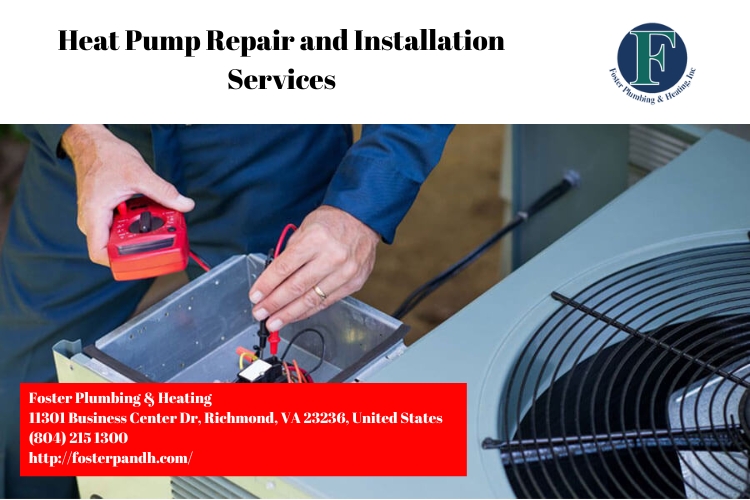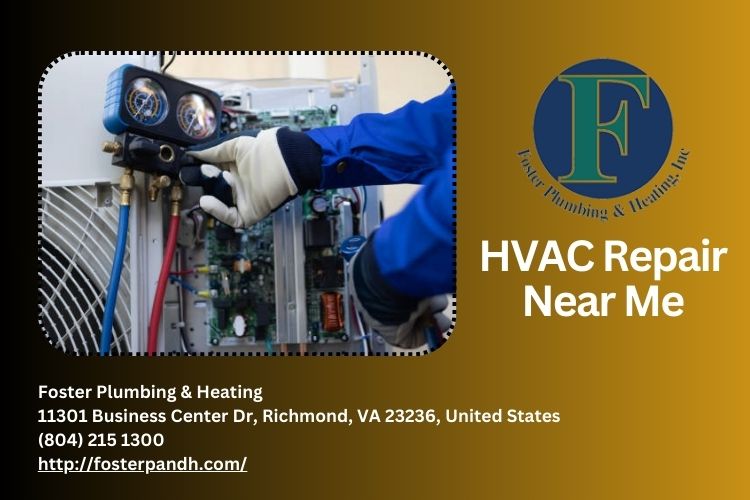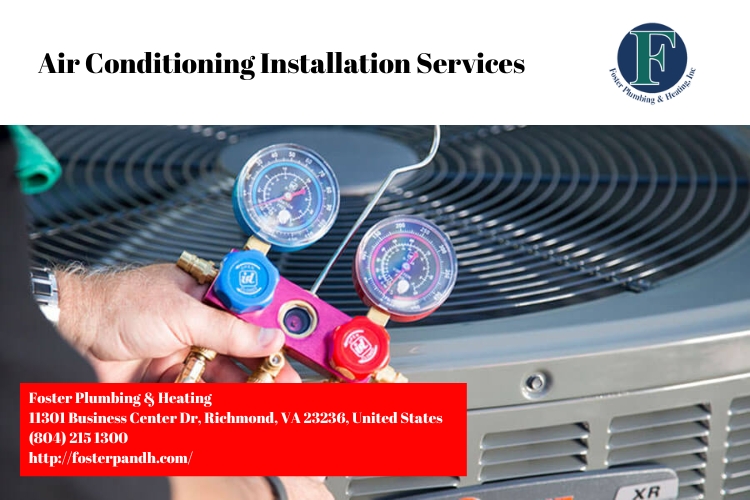In the picturesque city of Richmond, Virginia, the climate can be as diverse as its rich history and culture. With hot summers, mild winters, and varying humidity levels throughout the year, it's crucial for homeowners to understand how these climatic conditions affect their Heating, Ventilation, and Air Conditioning (HVAC) systems. This comprehensive guide will delve into Richmond's unique climate characteristics and explore how they impact your HVAC system. We at Foster Plumbing & Heating are here to provide you with expert insights and practical solutions for optimizing your HVAC system for efficiency and comfort.
Understanding Richmond’s Climate
Richmond experiences a humid subtropical climate characterized by four distinct seasons. This climatic pattern significantly influences not only daily life but also the functioning of HVAC systems.
Seasonal Overview of Richmond’s Weather
Spring (March to May)- Temperatures range from cool to warm. Occasional thunderstorms can produce heavy rainfall. Humidity begins to rise as summer approaches.
- High temperatures averaging between 85°F to 95°F. Humidity levels can soar, making it feel even hotter. Frequent thunderstorms may occur.
- Mild temperatures and decreasing humidity levels. Beautiful foliage attracts visitors and residents alike. Transitioning weather may lead to temperature fluctuations.
- Cold temperatures averaging between 30°F to 50°F. Snowfall is limited but possible during colder months. Frosty mornings can be common.
Humidity Levels Throughout the Year
Richmond is known for its high humidity during summer months. The average relative humidity ranges from 60% in spring through summer months up to 80% in fall. Understanding these levels is essential when considering your HVAC needs.
| Season | Average Temperature | Average Humidity | |------------|---------------------|------------------| | Spring | 55°F – 75°F | 60% | | Summer | 85°F – 95°F | 70% – 90% | | Fall | 50°F – 70°F | 60% | | Winter | 30°F – 50°F | 50% |
Richmond’s Climate and Its Impact on Your HVAC System: What You Need to Know
Understanding how Richmond's climate affects your HVAC system can help you maintain a comfortable indoor environment while ensuring energy efficiency.
How Temperature Affects Your HVAC Performance
The temperature extremes experienced in Richmond necessitate a well-functioning HVAC system capable of maintaining consistent indoor temperatures regardless of outdoor conditions.
- Summer Heat: High temperatures require air conditioning systems that efficiently cool spaces—this often leads to increased wear on units if not properly maintained or sized for the home. Winter Chill: In colder months, heating systems must efficiently heat spaces without excessive energy consumption—ensuring proper insulation plays a significant role here.
Humidity Control: The Key Component
Excess humidity during summer months can strain your cooling equipment, leading to potential breakdowns if not adequately addressed.
- Dehumidification Needs: Invest in an HVAC system with built-in dehumidification capabilities or consider using additional dehumidifiers during peak season. Air Quality Concerns: High humidity can lead to mold growth and allergens; regular maintenance by professionals like Foster Plumbing & Heating ensures clean air circulation.
System Sizing Matters
One critical aspect influenced by Richmond's climate is the sizing of your HVAC unit:
Undersized Systems: If your unit is too small for your space, it will struggle during extreme temperatures leading to increased energy bills and premature wear. Oversized Systems: Conversely, an oversized unit will cycle on and off frequently, reducing efficiency and comfort levels due to inconsistent temperature control.Selecting the Right HVAC System for Richmond’s Climate
Choosing the right system tailored specifically for Richmond's climate constraints can make all the difference in home comfort levels.
Types of HVAC Systems Suitable for Richmond
Central Air Conditioning Heat Pumps Ductless Mini-Split Systems Gas Furnaces Electric Heating SystemsHeat Pumps vs Traditional Air Conditioners
Heat pumps serve dual purposes—they provide both heating and cooling solutions which can be particularly beneficial given Richmond’s moderate winters compared to more northern climates where traditional furnaces dominate.

Energy Efficiency Ratings Explained
When choosing an HVAC system suited for Richmond's climate conditions, understanding energy efficiency ratings like SEER (Seasonal Energy Efficiency Ratio) and HSPF (Heating Seasonal Performance Factor) is vital:
- A higher SEER rating indicates improved cooling efficiency—important during hot summers. HSPF ratings reflect heating efficiency—essential during chilly winter months.
Common Issues Faced by HVAC Systems in Richmond
Even with the best systems installed, issues may still arise due to specific environmental factors unique to this area:
Overworking During Peak Seasons
During peak summer or winter seasons when temperatures reach extremes:
- Increased wear on components could lead directly towards needing repairs or replacements. Regular maintenance checks by professionals like Foster Plumbing & Heating are essential!
Clogged Filters Due To High Dust Levels
Richmond experiences dust accumulation due partly from seasonal changes:
- Clogged filters hinder airflow leading your HVAC system into overdrive—resulting in higher energy costs! Regular filter changes every one-to-three months keep airflow optimal while extending equipment lifespan!
The Importance of Regular Maintenance on Your HVAC System
Regular maintenance cannot be overstated when it comes down keeping things running smoothly under changing conditions!
What Does Regular Maintenance Entail?
Changing filters regularly Cleaning coils Checking refrigerant levels Inspecting electrical connections Ensuring proper thermostat functionMaintaining regular service appointments with trusted providers like Foster Plumbing & Heating guarantees systems run at peak performance year-round!
FAQs
What should I do if my HVAC system isn’t cooling properly?
If you notice inadequate cooling performance:
- Check air filters; replace them if dirty! Confirm thermostat settings aren’t set too high or incorrectly calibrated! If problems persist contact professionals at Foster Plumbing & Heating!
How often should I have my HVAC system serviced?
It’s advisable twice per year—once before summer starts focusing on cooling aspects then again before winter!
Can high humidity damage my HVAC system?
Yes! Excessive moisture increases risk mold http://fosterpandh.com/ HVAC growth within ducts compromising both indoor air quality & mechanical reliability!

What signs indicate I need an HVAC repair?
Watch out for:

- Unusual noises Inconsistent temperature Increased energy bills without clear reasoning
If any occur—you may require immediate attention from experts!
Is it worth investing in a smart thermostat?
Absolutely! Smart thermostats optimize energy usage based on habits while providing remote control features via smartphones ensuring you arrive home comfortably cooled/heated!
How long does an average HVAC unit last?
Typically ranges around fifteen years but heavily relies upon maintenance frequency alongside usage patterns!
Conclusion
Understanding how Richmond’s unique climate impacts your HVAC system is crucial for maintaining optimal comfort at home while keeping energy costs manageable. By investing in proper equipment selection tailored specifically toward local weather patterns along with committing yourself towards regular maintenance routines—you’ll ensure prolonged durability coupled with maximum efficiency throughout all seasons! For professional support regarding any questions or concerns about installation/repair services concerning heating/cooling needs—we encourage reaching out directly towards Foster Plumbing & Heating today!
Incorporate these strategies into your routine today because proactive care goes a long way!
Contact us:
Foster Plumbing & Heating
11301 Business Center Dr, Richmond, VA 23236, United States
Phone: (804) 215-1300